Tocqueville’s lessons for Macron battle to change French attitudes to wealth
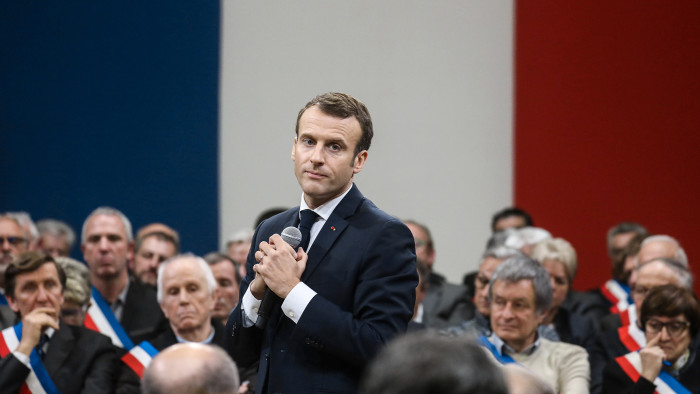
Roula Khalaf, Editor of the FT, selects her favourite stories in this weekly newsletter.
“We are falling asleep on top of a volcano,” warned French intellectual and politician Alexis de Tocqueville in a speech to the French parliament shortly before France was convulsed by another revolution in 1848.
As France has once again faced violent protests, one of de Tocqueville’s descendants is on the frontline of President Emmanuel Macron’s struggle to change French attitudes to wealth and the state.
Like his ancestor a lawyer, Jean-Guillaume de Tocqueville admits to being a beneficiary of Macron’s slashing of France’s wealth tax in 2017. Its restoration has been one of the main demands of the anti-elite gilets jaunes protest movement. “I make a decent living as a lawyer and I have a bit of family money,” says the 60-year-old. “But I’m not a high-net-worth individual.”
Jean-Guillaume, a partner specialising in banking and finance at Gide, a Paris law firm, is also the owner of the family château in Normandy that Alexis shared with his English-born wife Marie Mottley, a commoner he married for love, in defiance of convention that he should marry another aristocrat. Yet “not all people who live in châteaux are rich”, maintains Jean-Guillaume, who adds that the wealth tax — introduced in different guises under previous socialist governments — merely led to an exodus of many wealthy French without adding significant amounts to state coffers.
While Macron’s tax reform programme was “sound economic policy”, he says, “what was not smart” was a planned January 2019 fuel tax hike. This helped trigger weeks of violent protests from November last year, including, as in 1848, the destruction of property on the Champs-Elysées, the grand Parisian thoroughfare.
“In the countryside, people of modest means need their car for everything — whether to take their kids to school or go to the doctor,” points out Jean-Guillaume.
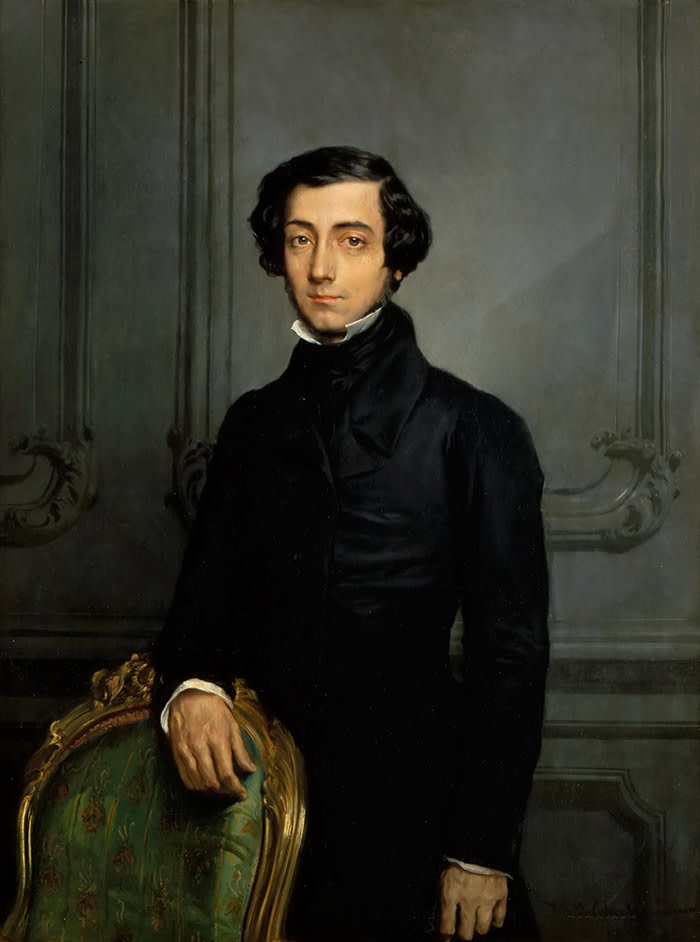
Alexis de Tocqueville is possibly better known in the US, thanks to his book Democracy in America. Affiliates of the United Way, the richest US charity, even admit to self-styled Tocqueville Societies any donors of $10,000 or more. Yet the 19th-century aristocrat’s views on France — including his lament that the French had consistently opted for equality over liberty since the revolution of 1789 — are “topical” today, says Jean-Guillaume.
Macron was referring to deeply ingrained egalitarian instincts when he said he would “not give in to French jealousy” by bringing back the wealth tax.
Yet when Jean-Michel Blanquer, France’s education minister, described the president’s launch in January of public consultations to resolve the national crisis as “a Tocquevillian moment”, he was referring above all to Alexis’s admiration for American civil society.
“It is by entrusting the management of local matters to citizens that you get them interested in the public good,” wrote Alexis, after a nine-month tour of North America in 1831 convinced him that democracy was inevitable in France as it seesawed unhappily from revolution to reaction.
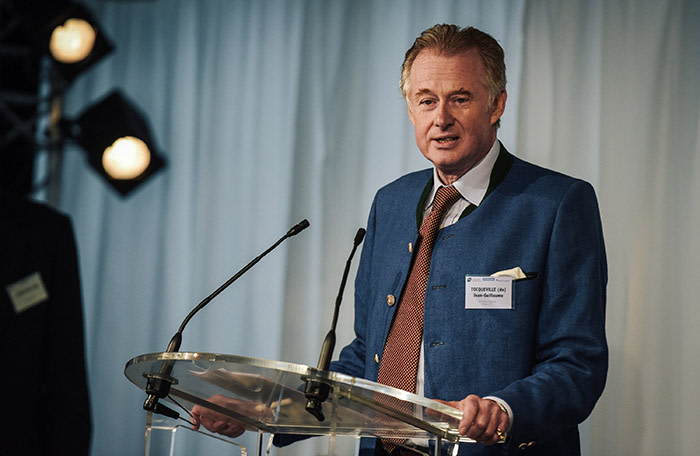
For all the popular fury at the “président des riches”, Jean-Guillaume, who set up the Franco-American Tocqueville Foundation to promote civil society in France, believes “mentalities are evolving” in his country.
Two examples of such change, argues John Rossant, a US philanthropist who sits on the foundation’s board, are to be found in Paris — at Station F, a campus for start-ups founded by entrepreneur Xavier Niel, and the Fondation Louis Vuitton art museum established by luxury tycoon Bernard Arnault.
“People are realising government is more and more short of money. There is no way the state can cover all public needs, so private funding has to kick in,” says Jean-Guillaume.
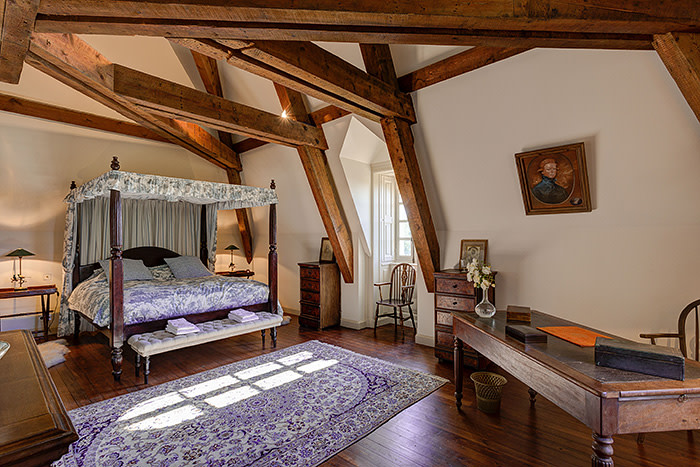
This includes funding for national monuments such as the Tocqueville château, near the Normandy D-Day landing beaches. Open to any visitor on request, the château receives some local government subsidy for big repairs as well as the foundation’s annual conference on democracy. Yet in a display of entrepreneurial self-help, Jean-Guillaume and his wife Stéphanie started letting out the château’s south wing to visitors after a refurbishment a decade ago that was closely supervised by state-approved architects.
Such revenue-generating capacity makes it more likely one of their four children will agree to inherit the castle, which has been in the family since the mid-17th century. “If you ask kids to take over a house that’s too expensive [to keep], they won’t do it,” says Jean-Guillaume. “Sometimes you feel like you are in The Last of the Mohicans because you are trying to keep up traditions that are no longer quite so fashionable.”
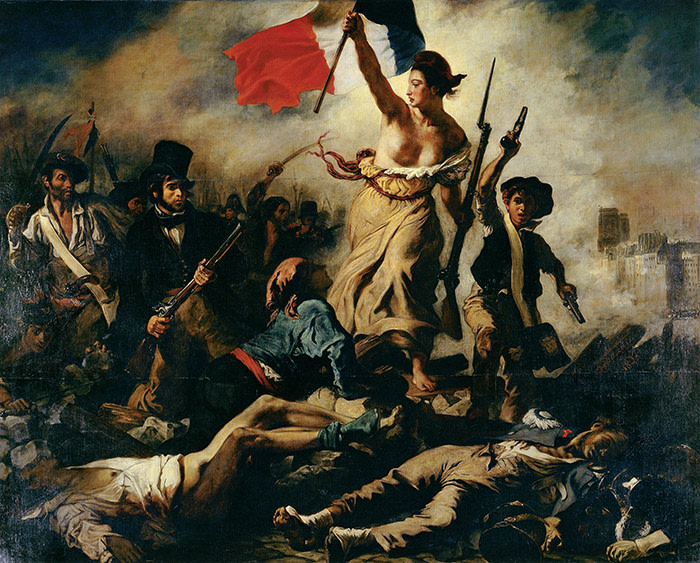
Leticia Petrie, former managing director of the Institut de France, a philanthropic organisation that manages historic sites including the château of Chantilly, welcomes the government’s review, announced last year, of the support system for the nation’s built heritage. “A reorganisation needs to find the right balance between what is historically correct and what needs to be done for a house to generate revenues that contribute to its upkeep,” she says. Charities in the UK, such as the Landmark Trust and National Trust, which rent out properties to holidaymakers, are useful models for France, she says.
Ironically, Macron’s tax reforms led to a drop in charitable donations in 2018, and Bill Gates’ and Warren Buffett’s Giving Pledge — urging the ultra-rich to give away half their fortunes — “was not a success in this country”, says Jean-Guillaume. Some of this can be explained by France’s traditionally heavy taxation, which gave taxpayers added incentive to apply for tax credits worth 75 per cent of any charitable donations, up to the allowable maximum of €50,000.
In 2017, France overtook Denmark as the most taxed member of the OECD club of advanced economies. That changed in 2018 when parliament scrapped the wealth levy on everything except property assets — in effect cutting the tax by 70 per cent. It also introduced a 30 per cent flat tax rate on capital gains, dividends and interest — a longstanding demand from investors and entrepreneurs.
In contrast, the US tax system, criticised by some as too generous to billionaires, taxes Americans on worldwide income and assets but has no limits on the scale of donations that are tax-deductible.
Yet, as Petrie points out, philanthropy is not just about money but time — and even voluntary organisations in France face bureaucratic obstacles in the form of labour legislation requiring the payment of social contributions for volunteers, not to mention union objections to volunteers “stealing jobs”.
Another big source of difference with the US is cultural, says Rossant. “Wealth is considered quasi-shameful in France,” he says. “If you have it, you don’t flaunt it. Vivre heureux, vivre caché [to live happily, live hidden],” as the saying goes.
To visit the château at Tocqueville, contact the Office de Tourisme du Cotentin in Saint-Pierre-Eglise
Comments